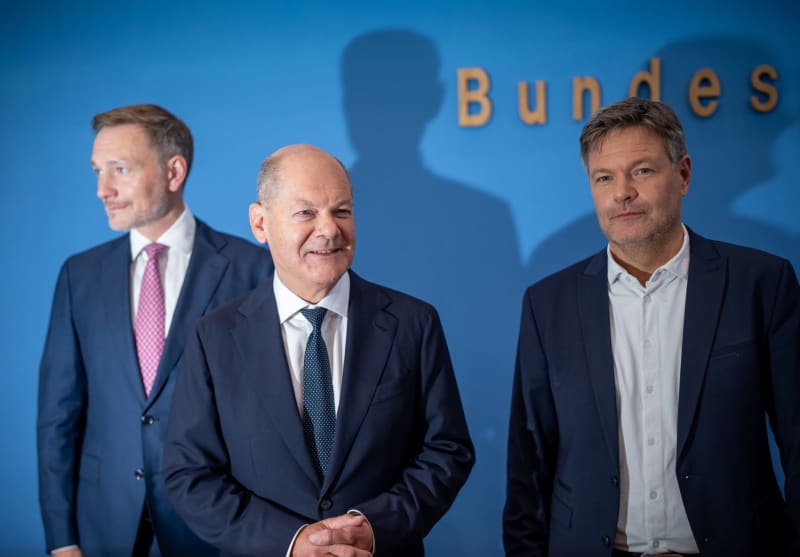The leaders of Germany’s three-party coalition on Friday achieved a breakthrough in negotiations on the national budget for 2025, dpa has learnt from government sources.
The coalition leaders have also reached a preliminary deal on a financial plan to secure additional economic growth of more than 0.5% – worth an estimated €26 million ($28 million) – in the coming year.
Sources told dpa that the coalition plans to stick with strict rules against budget deficits, known as the debt brake, banking on a significant increase in economic output and a supplementary budget to overcome shortfalls in government spending.
The breakthrough comes after weeks of negotiations between German Chancellor Olaf Scholz of the Social Democratic Party (SPD), Vice Chancellor and Economy Minister Robert Habeck of the Greens and Finance Minister Christian Lindner of the pro-business Free Democratic Party (FDP).
The key sticking point has been a multibillion-euro deficit in government expenditure, with Lindner’s FDP refusing to sideline the debt brake to allow for additional borrowing and investments, and the SPD ruling out any cuts to welfare spending.
Sources told dpa that the new deal includes a supplementary budget totalling €11 billion to bridge the gap, compensating for lower-than-expected tax revenues and higher government spending.
After a final round of consultations carried on throughout the night on Thursday, Scholz and Habeck met their parliamentary groups on Friday morning to discuss the details of the deal.
The leaders had originally planned to reach an agreement by Wednesday, but are now aiming to present a budget at a Cabinet meeting on July 17.
In order to meet the deadline, a preliminary deal was essential, as the drafting of the budget law typically takes around 10 days.
The Bundestag, the lower house of the German parliament, is due to begin deliberating the draft budget from mid-September, and it could be approved in November or December.
Growth plan for Germany
The coalition’s new financial plan aims to kick-start a German economy that has struggled since the coronavirus pandemic, with companies withholding investment and private consumption failing to re-emerge.
Business associations have long complained about hurdles to growth, including a high tax burden, a shortage of skilled labour and excessive bureaucracy.
Left-wing critics, meanwhile, blame the debt brake – enshrined in the German constitution in 2009 in the wake of the financial crisis – for preventing key…
Click Here to Read the Full Original Article at Yahoo News – Latest News & Headlines…

